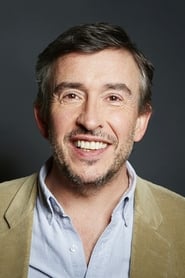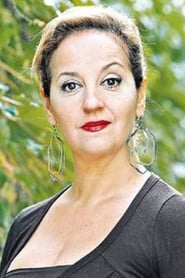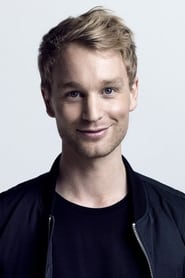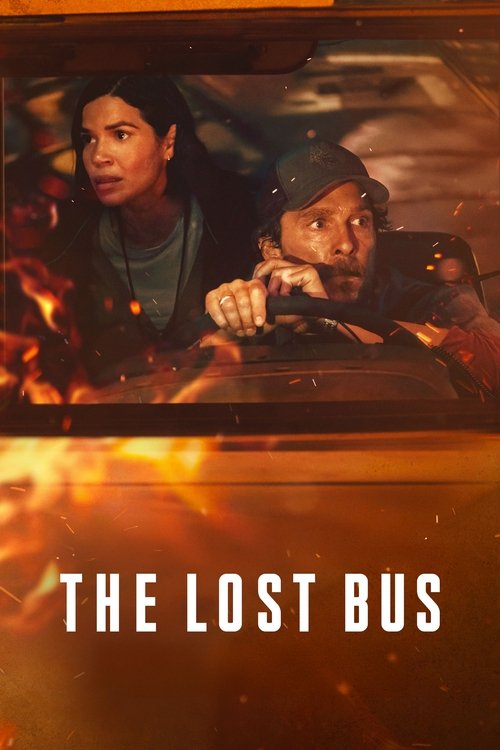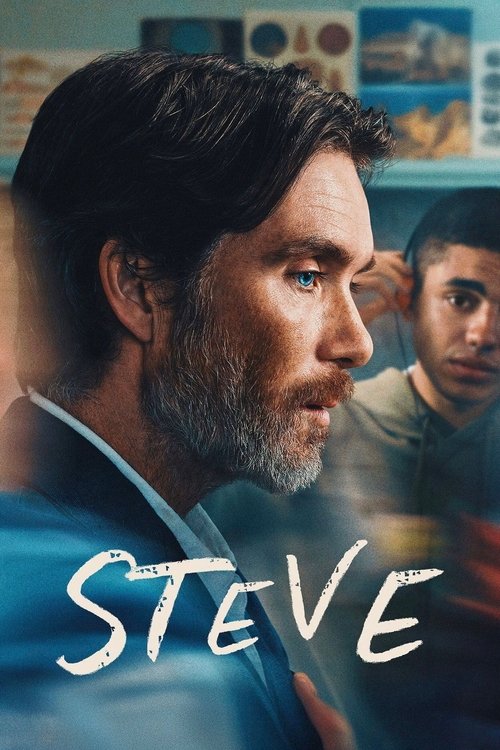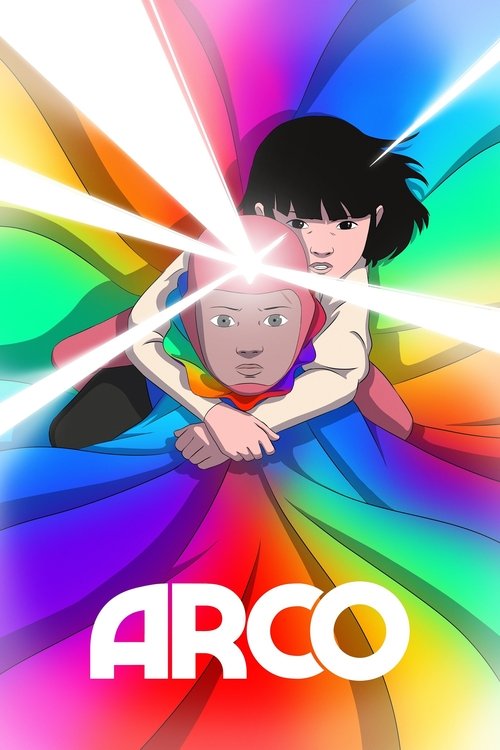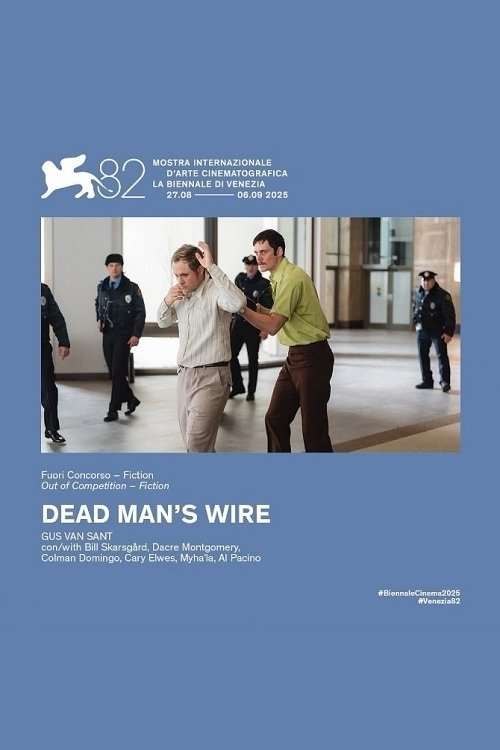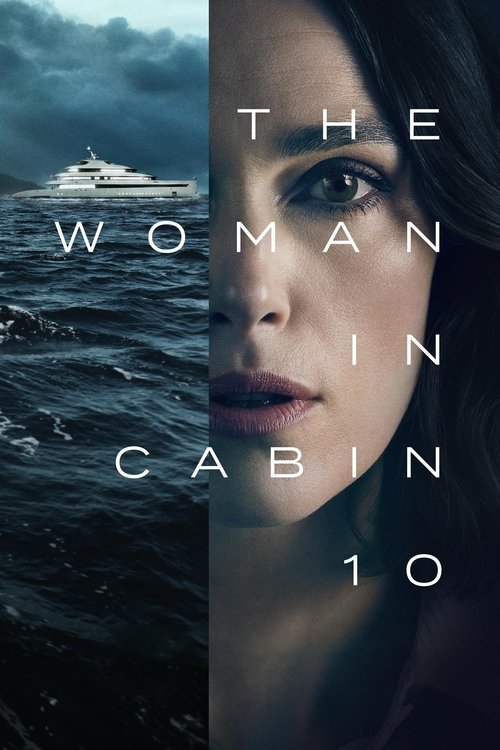
Ask Your Own Question
What is the plot?
In 1976 Tom Michell arrives in Argentina to take up a post at St. George's College, an exclusive boys' boarding school outside Buenos Aires. He comes as an English teacher who will also coach the rugby team, carrying the weariness of a man who has drifted between jobs and countries. Soon after he settles into the staff quarters, he forms a working relationship with the school's housekeeper, María, and through her meets María's granddaughter, Sofía, a young woman deeply engaged in street demonstrations against the rising tide of military repression and the unfolding coup d'état. Tom also grows close to Tapio, the school's committed science instructor. The headmaster, Buckle, greets Tom with confidence in his credentials and gives him latitude; despite that trust, Tom struggles to keep his adolescent pupils attentive in class and disciplined on the pitch.
Tension in the city escalates when an explosion rocks a neighborhood; the headmaster decides to send the boys home for a week while authorities restore order. Tom uses the break to travel to Uruguay with Tapio. On a humid night in Montevideo, Tom meets Carina at a local dance club; they flirt and then go to a nearby beach together. At dawn, they stumble upon a slick of oil along the sand, and among the crusted black carcasses of Magellanic penguins they find one bird still alive but fouled and trembling. Tom and Carina take the solitary penguin back to the hotel. In the small bathroom, they strip its oil-coated feathers under a running bathtub faucet and work together to wash the bird, their intimacy marked by laughter and a brief exchange of tenderness. When Tom tries to push their connection further, Carina tells him that she is married and refuses his advances, ending their brief romance with a gentle but firm refusal.
Tom attempts to return the cleaned penguin to the sea, lowering it at the edge of the surf and watching it plunge forward, but each time the bird swims back to him and waddles ashore toward the place where he stands. He leaves it on the beach, walks away, and within minutes strangers find the penguin and insist--more forcefully than politely--that he take responsibility for the animal. On another attempt he hands it to a local authority figure who threatens arrest if he does not accept the bird, and the penguin returns to Tom's footsteps as if choosing him. Reluctantly, Tom smuggles the penguin back across the border to St. George's inside his luggage.
Back in Argentina, Tom calls the city zoo and goes to inspect the facility where officials promise to take the bird. He walks the zoo grounds and finds cramped cages and poor conditions for the animals; the place shocks him. Watching the penguins confined in depressed enclosures convinces him that leaving his bird there would be cruelty. Tom decides to adopt the lone survivor himself. He gives the bird a name drawn from a favorite book--Juan Salvador--and brings it into the domestic orbit of the school.
María and Sofía meet Juan Salvador at María's modest flat and are instantly enchanted. María's face brightens when the penguin waddles across the tiles; Sofía laughs and holds a chunk of fish to coax Juan Salvador to peck delicately. Tom carries the bird into his classroom and introduces Juan Salvador to his pupils. The boys, who had been wilful and distracted in class, stop misbehaving and gather around the small, dark bird. Their attention sharpens as they ask questions and sit in silence to watch Juan Salvador preen and hop. Tom allows the students--quietly and surreptitiously--to feed the penguin small fish, and they develop a secret ritual of bringing food and watching him on the sly, keeping his presence hidden from Headmaster Buckle.
Tapio, the science teacher, finds a personal connection with Juan Salvador as well. He organizes moments when he can observe the penguin's behavior and speaks to Tom about animal biology and the bird's temperament. The presence of Juan Salvador changes daily life at St. George's: classes gain focus, the rugby boys show more patience, and even Buckle, although unaware at first, notices a different atmosphere among his staff and pupils.
In the streets near María's home political violence intensifies. Tom witnesses Sofía as she joins a noisy demonstration; he watches from a distance as uniformed men suddenly seize her in the crush of the crowd. They drag her into a truck and drive away. Tom freezes and does not run forward to intervene. He returns to María's flat to find the household in turmoil; María resolves to organize protests and petitions to demand Sofía's release. Over their whispered talks in the kitchen, Tom listens to María's plan and hears the raw fierceness of her grief and determination. She speaks of family and justice; Tom, moved by her courage, confesses his private loss--he tells María that his teenage daughter died in a car accident years earlier and that the grief fractured his marriage. He admits to her, with guilt and shame, that when he saw Sofía being dragged off he stood by and did nothing.
Word of Juan Salvador filters to Buckle. When the headmaster learns that Tom has been keeping an unauthorized animal on campus, he reacts with strictness. Buckle enforces school rules and summons Tom to demand the removal of the penguin; he orders Tom to leave St. George's and terminate his position, citing policy and propriety. Tom faces forced exile from the job he has been trying to rebuild his life around, and he is stunned to think his improvised care for the bird will cost him his place.
Meanwhile María intensifies her campaign to secure Sofía's freedom. She takes to the streets in protests and stands outside military buildings with leaflets and a small group of supporters. The situation reaches a boiling point when Tom decides he cannot remain passive about Sofía's detention. He seeks out the man he believes ordered the abduction, a uniformed officer associated with the forces detaining activists. Tom goes to the official's compound and confronts him directly. He demands to know where Sofía is and insists on her release. The confrontation turns hostile. Security men surround Tom and drag him into custody. At the station and in the holding cell he is struck repeatedly; guards beat him with fists and batons, leaving him bruised and bloodied. The beatings continue until a colleague, Tapio, arranges to post bail and secure his release. Tapio pays the fine, signs the paperwork, and takes Tom from the lockup, supporting him as he walks away with cuts across his arms and face.
After the assault and arrest Tom returns to St. George's limping with his wounds, and the headmaster revisits his decision about Tom's employment. Buckle has observed how the children have changed since Juan Salvador arrived; he sits across from the penguin once in a quiet office and speaks aloud in a tone both stern and oddly fond. He admits to himself and then to Tom that the penguin has improved morale among pupils and staff. Buckle reluctantly rescinds his dismissal; he allows Tom to remain at the school and permits Juan Salvador certain privileges. He even consents to the bird being taken--under supervision--to the school's swimming pool, where the penguin glides in the water amid staff watching with restrained amusement and tenderness.
The reprieve is brief. One morning the penguin is found motionless. Juan Salvador dies unexpectedly in his enclosure; he does not suffer a witnessed attack, and no person strikes him down. The students and teachers discover the bird cold and still. Tom holds him and feels the finality in the stiffening body. The staff do not announce a sensational cause; there is no forensic explanation shown on the campus, and nobody confesses to having harmed the animal. Tom wraps Juan Salvador with care and carries him across the lawns of St. George's to a spot beneath a tree beside the rugby field. He digs a grave at the tree's edge, lowers the bird's body into the earth, and covers the burial site with soil. The boys gather to watch. Some clap as if ending a match; others stand with heads bowed.
Tom delivers a eulogy at the little burial ceremony for staff and students. He speaks quietly and deliberately over the small mound of earth, naming the penguin and recalling the moments of light and laughter Juan Salvador brought to the school community. As Tom finishes and the group begins to disperse, María arrives--she has been out protesting--and Sofía appears behind her, stumbling, bruised, and shaken. The granddaughter steps forward, fatigue etched into her features, and María reaches out and embraces her. The two women cling to one another on the grass, and Tom watches the reunion: Sofía, back alive but marked by detention and rough treatment at the hands of the authorities, and María, weeping with relief and exhaustion.
The film's last visible moments fix on the burial site under the tree by the rugby pitch as the school returns to its routines. Tom remains at St. George's. The boys play rugby on the field beyond the grave. Sofía stands with María and speaks in low tones about the days she was taken. Tapio returns to his lab and classes. Buckle moves through his administrative rounds with the knowledge that the school community has changed in some small ways that he cannot entirely manage by rules. The camera lingers on the turned earth, the small headstone or marker that marks Juan Salvador's resting place, and on the figures of Tom, María and Sofía as they stand together before returning slowly to the buildings of St. George's College. The final frame holds on the trio and the patch of ground where the penguin lies buried beneath the tree by the rugby field, and the narrative closes with their silhouettes walking back across the lawn toward the school.
What is the ending?
Short Narrative Ending
In The Penguin Lessons, Tom Michell, a disillusioned teacher, finds an oil-soaked penguin during a trip and decides to keep it, naming it Juan Salvador. As Michell cares for the penguin, he begins to open up emotionally and connect with his students and colleagues. The penguin becomes a symbol of hope and change, helping Michell confront his past traumas and get involved in the local resistance against the Argentine military coup. Ultimately, Michell learns valuable lessons about connection, courage, and the power of unexpected friendships.
Expanded Narrative Ending
The ending of The Penguin Lessons unfolds as a transformative journey for Tom Michell, both personally and professionally. Here's a detailed narrative from the pivotal scenes leading to the conclusion:
Introduction of Juan Salvador
Tom Michell, while on a brief escape from his teaching duties at St. George's College in Argentina, finds himself in Uruguay, where he encounters an oil slick on the beach. Among the dead penguins, one survives, and Michell, with the help of a woman named Carina, decides to take the penguin in. After a brief romance attempt fails, Michell is left alone with the penguin, which he names Juan Salvador. Despite initial reluctance, Michell smuggles Juan Salvador back to his school, defying the strict "no pets" policy.
The Penguin's Impact on Michell
As Michell cares for Juan Salvador, the penguin becomes an unexpected catalyst for Michell's emotional awakening. The penguin's presence helps Michell connect with his housekeeper, Maria, and her granddaughter Sofia, who are involved in the local resistance against the military coup. This exposure slowly draws Michell out of his emotional shell, encouraging him to engage more deeply with his students and the political turmoil around him.
Integration into School Life
Michell introduces Juan Salvador to his students, using the penguin as a teaching tool. The students are immediately charmed, and this newfound connection helps Michell bond with them on a deeper level. The penguin becomes a secret companion, fed fish by the students under the guise of a clandestine project. This shared secret strengthens Michell's relationships with his students, making them more attentive and engaged in class.
Confronting Past Trauma and Political Turmoil
As Michell becomes more involved with the penguin and his students, he is also drawn into the political resistance by Sofia's activism. This exposure forces Michell to confront his past traumas and reevaluate his stance on the world around him. The subplot involving the underground movement against the Argentine military coup adds tension and depth to Michell's character development. He begins to see the world through the eyes of those around him, particularly Sofia, who faces personal risks for her activism.
Climactic Resolution
The climax of the film involves Michell's growing involvement in the resistance and his decision to stand up against the oppressive regime. This is symbolized through his care for Juan Salvador, which has become a symbol of resilience and hope. The penguin's presence continues to inspire Michell to take action, culminating in a dramatic confrontation where Michell must choose between remaining silent or supporting those fighting for freedom.
Final Scenes
The final scenes show Michell having undergone a significant transformation, from a detached teacher to a person deeply invested in his community and the well-being of those around him. Juan Salvador remains a central figure, representing the transformative power of unexpected relationships and the courage to face adversity. The film concludes on a hopeful note, with Michell embracing his new role as an advocate for change, inspired by the lessons he learned from his unlikely friendship with a penguin.
Is there a post-credit scene?
The movie The Penguin Lessons (2025) does not have a post-credit scene. There are no extras or additional scenes during or after the credits, as confirmed by a dedicated after-credits source stating explicitly: "Are There Any Extras During The Credits? No" and "Are There Any Extras After The Credits? No".
What is the significance of the penguin named Juan Salvador in the story?
Juan Salvador, the oil-soaked emperor penguin, becomes a symbol of companionship and emotional connection for Tom Michell, the protagonist. Initially a burden, the penguin gradually helps Michell open up emotionally to others, including housekeepers, a fellow teacher, and his students. Juan Salvador also serves as a metaphor and a catalyst for Michell's personal growth and involvement in the community during a turbulent political period in Argentina.
How does the political backdrop of Argentina in 1976 influence the story?
The story is set against the 1976 Argentinian military coup, which creates a tense and dangerous environment. The political unrest and government oppression affect the characters' lives, with Michell initially detached but eventually drawn into resistance activities through his friendships. This backdrop adds gravity to the narrative and challenges Michell to confront his past trauma and take a stand for those he cares about.
What role do Michell's relationships with other characters play in the story?
Michell's relationships evolve significantly throughout the film. He starts emotionally closed off but, through caring for Juan Salvador, begins to connect with others. He forms bonds with two housekeepers, a fellow teacher, the school janitors, and his students, who become more engaged in his English lessons. These relationships highlight themes of redemption, community, and personal transformation.
Are there any notable themes explored through the characters' private conversations with the penguin?
Yes, several characters share private, one-sided conversations with Juan Salvador, which resemble confessions. These moments explore themes of redemption, the purpose of life, and personal struggles. Although the penguin cannot respond, these interactions provide insight into the characters' inner lives and contribute to the film's emotional depth.
How does the film balance humor and serious themes?
The film uses humor primarily through Michell's grumbling and the penguin's antics, such as squawking and alerting others when hidden. This lightheartedness contrasts with the serious political and emotional themes, including oppression, personal trauma, and courage. The British filmmaking style humanizes the story with humor and warmth, making the heavy themes more accessible and relatable.
Is this family friendly?
The movie The Penguin Lessons (2025) is generally a loveable dramatic comedy with a heartwarming story about a teacher and a rescued penguin, but it contains several elements that may be unsuitable or upsetting for children or sensitive viewers.
Key points regarding family-friendliness and potentially objectionable content include:
- Rating and language: The film is rated PG-13 and contains some foul/coarse language.
- Adult themes: It deals with political turmoil, specifically the Argentine military coup and the Dirty War, which introduces themes of oppression, fear, and political violence, shown in a restrained but potent way. These aspects can be intense or upsetting.
- Violence and bullying: There are scenes involving teenage bullying, including tying a classmate's hands and pretending to torture him in the context of the coup's ideological conflict. Though not graphic, this could be disturbing for younger children.
- Animal distress: The film includes a scene with the bodies of dead penguins killed by an oil spill, which might be upsetting for animal-sensitive viewers and children.
- Death: The story involves the death of the penguin Juan Salvador, which is emotional and could be difficult for sensitive children.
- Subtle adult content: There is a scene with the protagonist meeting a woman in a nightclub, implying mild adult themes.
Overall, while the film has a heartfelt message and charming elements, it is better suited for adolescents (13+) and adults due to its mature themes, some distressing scenes related to political violence, animal death, and coarse language. Parents should exercise caution and consider their child's sensitivity to such content before viewing.
Does the dog die?
There is no mention of a dog dying in the movie "The Penguin Lessons" produced in 2024 (incorrectly stated as 2025 in the query). The central animal in this film is a penguin named Juan Salvador, which is rescued and becomes a part of the story. The plot revolves around the teacher's relationship with his students and the penguin, not a dog.



